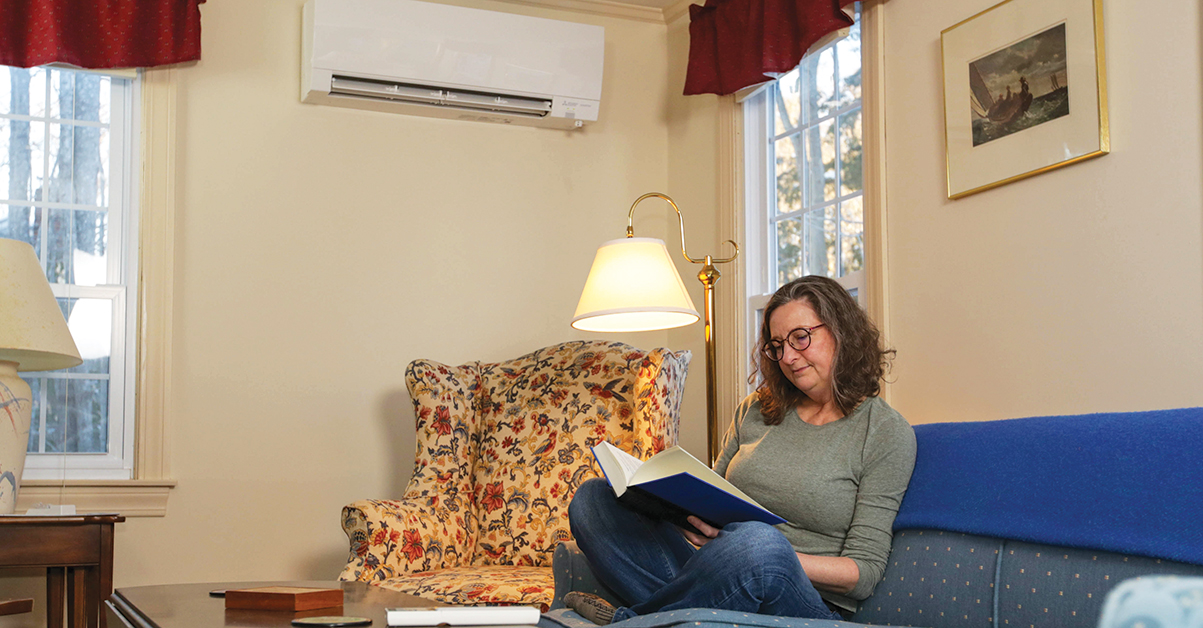Blog
Heat Pump User Tip: Set It and Forget It

In 2021, Mainers installed tens of thousands of heat pumps in their homes and businesses* because they are the most efficient way to heat and cool a building, saving users on their energy costs throughout the entire year.
If you’ve made the investment, or are considering it, we’d like to share some tips on how you can save the most with a heat pump. In our last user tip blog post, we discussed how well heat pumps can function in cold weather. This second post in our series talks about best practices for setting your heat pump thermostat.
Efficiency Maine recommends that users set their heat pump thermostat to a comfortable temperature when it starts to get chilly and then leave it alone. The reason for this is that a heat pump has to work harder to raise the temperature in a room than it does to maintain it. Heat pumps operate most efficiently when holding a steady temperature. Turning a heat pump down or off when you’re away or asleep may actually use more energy than leaving it at a constant temperature.
To illustrate this, the U.S. Department of Energy conducted a study in 2015 that compared the energy usage of eight homes heating only with heat pumps. Most of the homes left their heat pump at a constant temperature all winter, while one home frequently adjusted their heat pump temperature throughout the winter. The study found that the homeowners who kept their heat pump at a constant temperature used roughly half (54%) the energy that year compared to the homeowner who adjusted the temperature.**
So, when using your heat pump in the winter, it’s best to set it at a comfortable temperature and forget it. When a constant set point is used, heat pumps will modulate their output up and down in response to the outdoor temperature, which is their most efficient operating state. Adjusting the temperature for short periods of time, such as overnight, will not save money with a heat pump and will likely decrease comfort. Learn more about why setting your heat pump for comfort is a good strategy in our next heat pump user tip blog.
Efficiency Maine offers rebates and loans for homeowners and businesses interested in installing heat pumps. If you don’t have a heat pump, go to https://www.efficiencymaine.com/about-heat-pumps/ for more information on how to select a model, apply for rebates and financing, review installation considerations, and more. Also check https://www.efficiencymaine.com/heat-pump-user-tips/ to see more tips like this one and to view a video on how to get the most from your heat pump. To estimate your home heating costs, consider using our Home Heating Costs Calculator.
*Efficiency Maine Trust, 2021 Annual Report, (2021) p vii.
**Ueno, K., and H. Loomis. “Long-Term Monitoring of Mini-Split Ductless Heat Pumps in the Northeast.” U.S. Department of Energy, June 2015, https://www.nrel.gov/docs/fy15osti/63079.pdf.
To subscribe to Efficiency Maine’s blog page, please click here.
